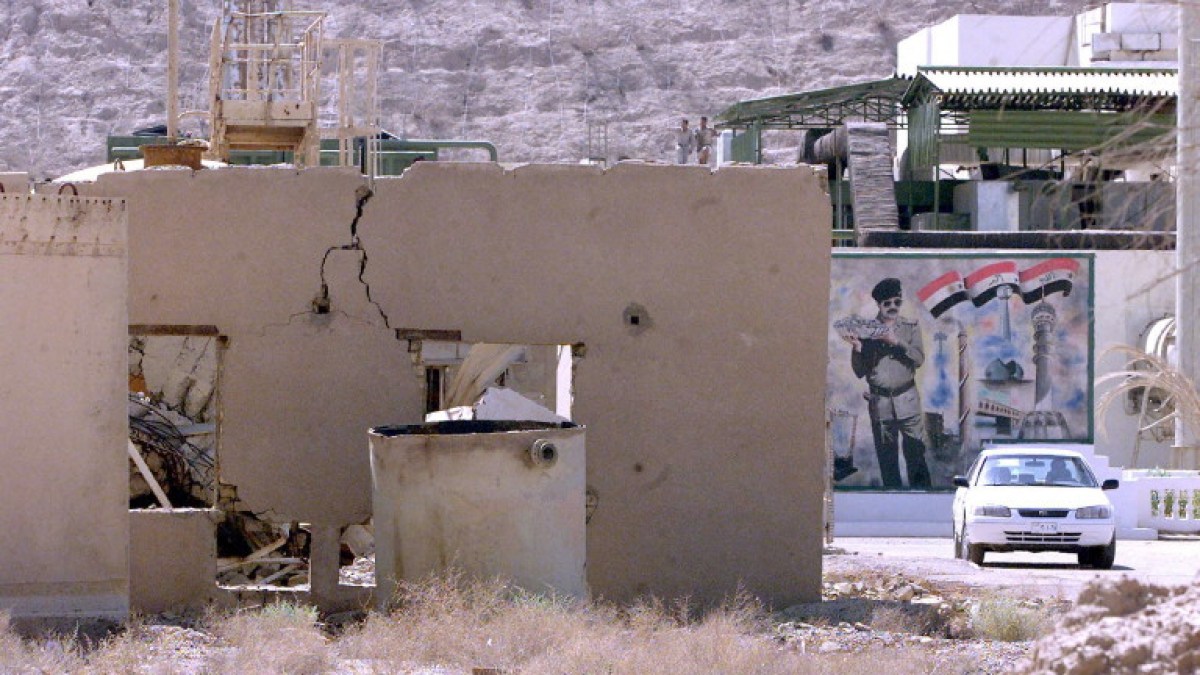An Israeli attack on Iran’s nuclear facilities could backfire

There has been much rumor about how Tel Aviv will react in response to the killing of Hezbollah leader Hassan Nasrallah in Beirut and Hamas leader Ismail Haniyeh in Tehran following Iran’s missile attack on Israel on October 1. Some observers have suggested that it could hit Iranian oil installations, and others, its nuclear facilities.
The administration of US President Joe Biden appears to be against both options, but it has approved the deployment of THAAD missile defense systems and American troops to Israel, possibly in anticipation of an Israeli strike.
Meanwhile, Biden’s political adversary, Republican presidential candidate Donald Trump, has egged on Israel to “hit the nuclear first”. Trump’s son-in-law Jared Kushner has also suggested the same.
Trump, Kushner, and other steadfast Israeli supporters are likely unaware of the effects of another Israeli attack that targeted an Iraqi nuclear site, despite the fact that they are happy to support an Israeli attack on Iran’s nuclear facilities.
What was largely a peaceful nuclear program was pushed underground by Israel’s bombing of Iraq’s French-built Osiraq nuclear reactor in 1981, which inspired Iraqi leader Saddam Hussein to invest in the development of nuclear weapons. A similar outcome is likely to be obtained by an aggressive attack on Iran’s nuclear program.
A ‘ pre-emptive ‘ strike
The USSR built a small nuclear research reactor in the 1960s, giving it some know-how, and then started Iraq’s nuclear program. Iraq expanded its civilian nuclear program with significant French and Italian assistance in the 1970s by purchasing a larger reactor from France, known as Osiraq.
The French government shared this information with Israel’s closest ally, the US, by making sure that technical measures were in place to stop any potential dual use of the reactor. As Israel claimed falsely, Iran, which signed the Nuclear Non-Proliferation Treaty and regularly had its nuclear sites inspected by the International Atomic Energy Agency (IAEA), was not “on the verge of” developing nuclear weapons.
Nevertheless, the Israeli government, which was facing growing discontent domestically and a potential loss at the approaching legislative elections, decided to proceed with the “pre-emptive” strike.
On June 7, 1981, US-made F-15 and F-16 fighter jets flew from Israel, refuelled mid-air, and carried out a strike on the Osiraq reactor, completely destroying it and killing three Iraqi civilians and one French engineer.
Israelis were stoked by the attack, which gave Prime Minister Menachem Begin a close victory in the elections three weeks later.
A trove of declassified US documents from 2021 demonstrates that Saddam’s nuclear ambitions were strengthened by Israel’s strike rather than its own.
More Iraqi scientists were inspired to work on their country’s nuclear program as a result. In his memoir, Iraqi nuclear scientist Jafar Dhia Jafar observed that “many were forming a line to help end the Jewish state’s monopoly on nuclear weapons in the Middle East.” They proved to be more valuable for Saddam than the reactor’s hardware, which he lost in the attack.
In the years that followed, Saddam’s regime began to coopt up nuclear activities and began contacting nations like Pakistan for assistance in developing nuclear weapons. Additionally, it attempted to rebuild the reactor that had been destroyed.
These efforts slowed down only in the early 1990s due to the first Gulf War, which decimated Iraqi infrastructure, and the subsequent sanctions, which drained state coffers.
The repercussions of an Iranian missile strike
Over the past few years, a number of Iranian nuclear scientists have been assassinated. Most recently, in November 2020, Mohsen Fakhrizadeh, a nuclear physicist and high-ranking member of the nuclear programme, was shot dead in an ambush near Tehran. Israel has previously accused Israel of carrying out this murder and other murders.
As a result of the ongoing attacks on Iran’s nuclear program, these assassinations may have killed key cadres, but they have also inspired a new generation of Iranians to pursue nuclear science.
The events since October 7, 2023 have further fuelled this sentiment. A poll conducted between February and May this year revealed that Iran’s public continues to support a peaceful nuclear program with an astounding level, as well as that there is growing public support for the country’s need to acquire nuclear weapons. The survey’s respondents indicated that 69 percent of them would back it.
Clearly, Israel’s actions so far are only increasing Iranian determination to continue its nuclear programme. That determination would be even stronger if it were to strike any of its nuclear facilities. And if we take the example of Iraq, it could stifle Iran’s nuclear program and help it become more advanced.
Today, Israeli Prime Minister Benjamin Netanyahu finds himself in his predecessor Begin’s shoes. Additionally, he is in charge of a government that has received a lot of negative feedback, including the one from October 7, 2023. Additionally, he wants to “victory” the Israeli people.
However, Israel won’t win if Netanyahu continues to act in Gaza and Lebanon. What he does in Iran will not. Iran and its allies will be able to quickly regain any skills they lose to careless Israeli strikes due to his strategy, which causes resentment in these nations and throughout the Middle East.
Source: Aljazeera
Leave a Reply